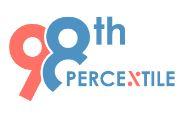Exploring the Fundamentals of Creative Writing: Ignite Your Imagination
Please help us keep this calendar up to date! If this activity is sold out, canceled, or otherwise needs alteration, email mindy@kidsoutandabout.com so we can update it immediately. If you have a question about the activity itself, please contact the organization administrator listed below.
Creative writing is a powerful form of self-expression that allows individuals to craft compelling stories, poems, essays, and more. Unlike academic or technical writing, it embraces imagination and creativity, transforming thoughts into captivating narratives. Whether you're a beginner or a seasoned writer, understanding the fundamentals of creative writing can unlock a world of artistic possibilities.
What Is Creative Writing?
Creative writing is any writing that goes beyond factual or informational purposes. It encompasses fiction, poetry, screenwriting, memoirs, and other forms that rely on the writer's imagination. It’s a space where you can break free from rigid rules and focus on storytelling, emotional expression, and originality.
The Key Elements of Creative Writing
- Imagination
- At the heart of creative writing lies imagination. Writers often ask, "What if?" to explore scenarios and create new worlds.
- Narrative and Plot
Every story needs a plot—a sequence of events that drive the narrative forward. A compelling plot keeps readers engaged and eager to find out what happens next.
- Characters
Memorable characters bring stories to life. They should be relatable, well-developed, and capable of evolving throughout the narrative.
- Setting
The backdrop of a story sets the tone and context. A vivid setting immerses readers and enhances the story’s authenticity.
- Language and Style
The choice of words, tone, and writing style defines the voice of a piece. Experimenting with literary devices like metaphors, similes, and imagery can elevate your writing.
- Emotion
Connecting with readers emotionally is a hallmark of impactful creative writing. Whether it's joy, sorrow, or suspense, evoke feelings that resonate with your audience.
Why Is Creative Writing Important?
Creative writing is more than an art form—it’s a tool for personal growth and communication:
- Enhances Creativity: Writing helps you think outside the box and find unique solutions to problems.
- Builds Communication Skills: A strong narrative improves storytelling and communication abilities.
- Therapeutic Benefits: Writing about personal experiences can serve as a therapeutic outlet.
- Encourages Critical Thinking: Crafting plots and characters sharpens analytical skills.
Fundamental Techniques in Creative Writing
- Show, Don’t Tell
Instead of stating facts, show them through actions and descriptions. For instance, "She was nervous" becomes "Her hands trembled as she clutched the paper."
- Create Conflict
Conflict drives a story. It can be internal (emotional struggles) or external (challenges from other characters or situations).
- Use Dialogue Effectively
Realistic dialogue reveals character traits and advances the plot. Avoid long monologues and use dialogue to add pace and dynamism.
- Experiment with Structure
Play with timelines, perspectives, or unconventional formats to keep your story fresh and engaging.
- Embrace Editing
The first draft is just the beginning. Revising and refining are crucial to producing polished work.
Getting Started with Creative Writing
- Read Widely
Exposure to diverse genres and styles inspires creativity and improves understanding of narrative techniques.
- Keep a Journal
Write daily to practice storytelling and record ideas. A journal is also a great place for brainstorming.
- Practice Freewriting
Set a timer and write whatever comes to mind without worrying about structure or grammar.
- Join Writing Communities
Connect with other writers for feedback and inspiration. Writing groups or online forums provide valuable support.
- Take Writing Courses
Enroll in creative writing classes to learn advanced techniques and get guidance from experienced mentors.
Challenges in Creative Writing and How to Overcome Them
- Writer’s Block: Take a break, change your writing environment, or try freewriting exercises.
- Fear of Criticism: Share your work with trusted individuals who provide constructive feedback.
- Lack of Ideas: Observe the world around you. Everyday moments can spark unique story ideas.
The Role of Creative Writing in Education
Creative writing fosters critical thinking and communication skills among students. It encourages them to:
- Think independently and express ideas effectively.
- Develop empathy by exploring different perspectives.
- Enhance vocabulary and language proficiency.
Start Your Creative Writing Journey with 98thPercentile
At 98thPercentile, we nurture budding writers through engaging programs tailored to enhance creativity. Our writing courses focus on:
- Structured lessons on narrative building, character development, and more.
- Interactive works hops to refine language and style.
- Personalized feedback to help writers grow.
Join us today and unleash your creative potential!
Creative writing is an enriching journey that lets you explore new worlds, ideas, and emotions. Embrace the art of storytelling and let your imagination soar!
*Times, dates, and prices of any activity posted to our calendars are subject to change. Please be sure to click through directly to the organization’s website to verify.



